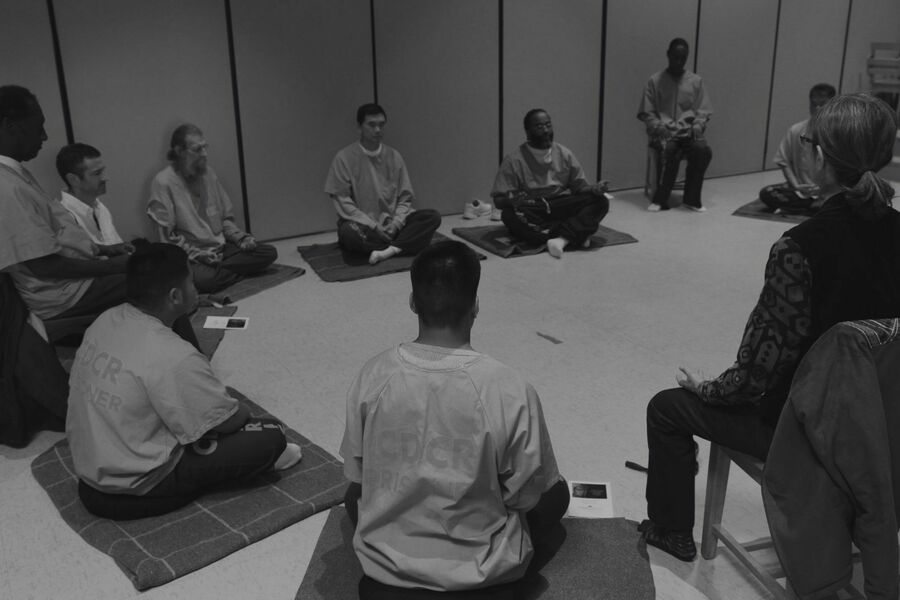Mindful Prisons - Boundless Freedom Project

Locations
- Mindful Prisons - Boundless Freedom Project, California
Focus Area
- Criminal Justice
“The prison-industrial complex is waging a war on the impoverished population. People do not just come out of the womb this way. They are struggling to get their basic needs met, then are being patrolled and arrested in higher volume for sometimes nominal crimes, and it changes the course of their life. And what’s at stake is the divide between the rich and the poor, the non-Black and the Black communities, and the future of millions of people.”
The Issue
Sometimes, what helps a person survive in one world doesn’t necessarily translate to another. This is especially clear when it comes to the experience of incarceration. As Eric Clark, program administrator for the Boundless Freedom Project shares, “Prison will break you if you don’t fight back. Far too many people succumb to the hardships. We buy into the negative stigma about who we are, who we are told we are. We are isolated and closed off because the conditions tell us we have to be. I accepted that I would die in there. So, I had to become the monster everyone said I was because I was in prison.”
More than 95% of the current prison population are going to be released back into society. How are we preparing them for reintegration? The high re-arrest rates for released prisoners would suggest a lot of potential for improvement. In 2016, 650,000 people were released from state and federal prisons and research shows 68% will be re-arrested within three years.
Another reality is that violence is a fact of life for many before, during, and after incarceration. Research shows that about half of individuals in state prisons were sentenced for violent offenses and prisoners are frequently subject to violence while in prison. And many of the rearrests after release are for a violent offense.
As Eric says, “Prison is not set up to provide services to make whole these individuals so they can be released with a healthy mindset and find productive and solid employment. Prison is not set up to fix or solve anything. It simply removes challenges to societal goals. And the challenges are the people.”
The Boundless Freedom Project in California challenges this narrative through their mission of lighting a path to freedom by sharing mindfulness, ethics, and compassion practices with people impacted by incarceration.
The Intervention
Boundless Freedom Project’s Mindful Prisons program offers mindfulness-based workshops to the incarcerated community. The focus of these workshops is cultivating an individualized mindfulness practice to equip folkson the inside with tools to manage and regulate their mental and emotional approach to living in a challenging environment. Nine of these in-person classes occur on a monthly basis and also include correspondence packet materials to enhance and reinforce the in-person offerings.
Research Question
How much does the Boundless Freedom Project’s Mindful Prisons program impact an incarcerated persons’ behavioral improvements, mindfulness, and sense of hope?
Intended Outcomes
Participants will have less Rules Violation Reports (RVRs)
Participants will have less contraband violations
Participants will have improved classification scores
Participants will report increased mindfulness and hope
Participants will have decreased recidivism long term.
Research Study Design
This study is a randomized controlled trial (RCT). The RCT will compare outcomes between individuals at multiple institutions within the California Department of Corrections who (1) are eligible to join the program based on work and classification requirements, are interested in the program and are randomly selected into the participation group and (2) those who are eligible to join the program based on work and classification requirements, are interested in the program but are not randomly selected to participate in the program.
Consent, randomization, and a baseline survey will be conducted at a reserved location with a pool of eligible and interested potential study participants. Treatment group participants will proceed with Mindful Prisons programming, and control group participants will not.